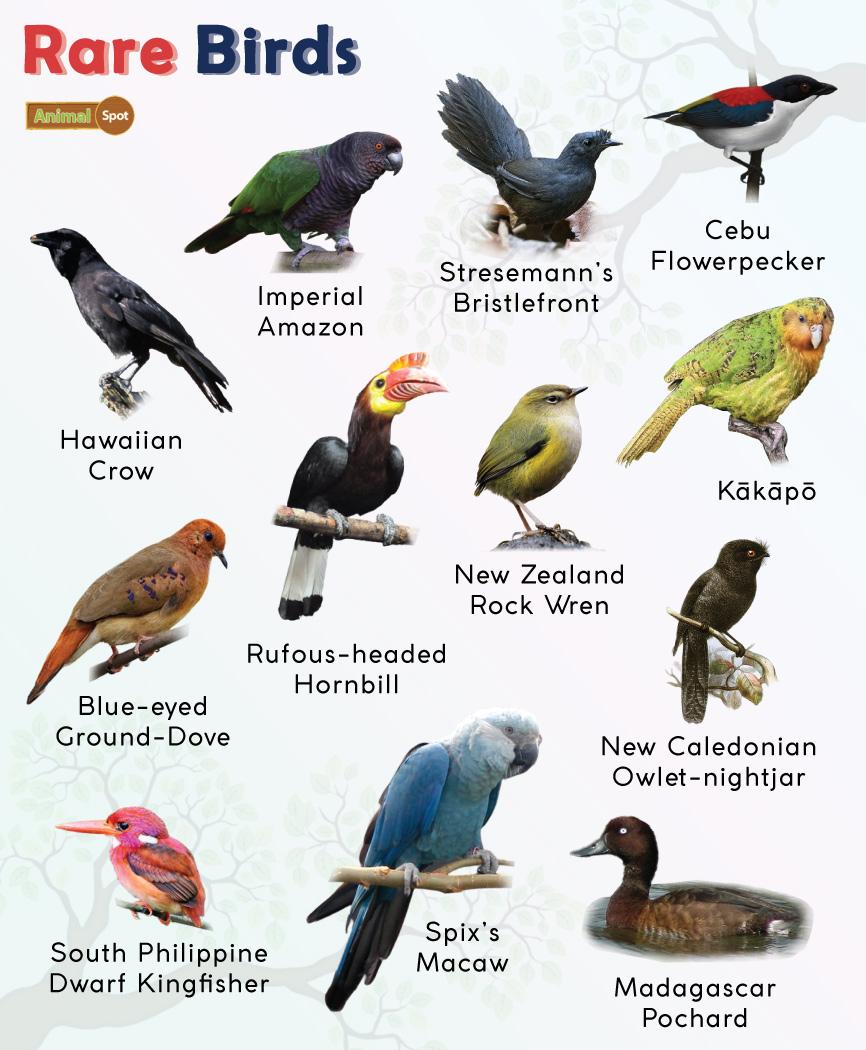Have you ever wondered if your special day is a truly unique occasion? It's a fun thought, you know, considering all the days in a year. While everyone gets to celebrate a birthday, some dates on the calendar happen far less often than others. It really makes you think about how many people share your particular day.
Finding out what is the rarest birthday is more than just a bit of trivia. It tells us interesting things about how we live and even how babies come into the world. People often have a good time guessing which dates might be the most unusual. It’s a bit like searching for a rare find, like a birdwatcher spotting a spatuletail, which is, quite honestly, a very rare sight for them.
We're going to look at information, using what people call "datasets," to figure out which birthdays are truly the least common. We can, in some respects, run queries on this kind of information to see patterns. This will help us see if your own birth date is a widely shared one or, perhaps, one of the rarest on earth.
Table of Contents
- Understanding Birthday Rarity
- The Least Common Birthdays
- Why Are Some Birthdays Uncommon?
- Is Your Birthday a Rare Gem?
- Frequently Asked Questions About Rare Birthdays
Understanding Birthday Rarity
When we talk about what is the rarest birthday, it's not always about a single, absolute date. There are a few things that make certain days less common for births. It's like looking at a big picture of all the birthdays, and some spots just have fewer dots, you know?
The idea of rarity here comes from looking at very large groups of birth records. We often compare the number of births on one day to the number on another. This helps us see which days are, quite simply, less popular for welcoming new babies. It's a rather straightforward way to figure things out.
The Calendar's Quirks
Our calendar itself plays a big part in why some birthdays are less frequent. Think about February, for instance. It’s shorter than other months, so it naturally has fewer days for births. This means any day in February will, by its very nature, have fewer births than a day in, say, August. It's just how the numbers work out, so it is.
Then there's the leap year situation. One day, February 29th, only comes around every four years. This makes it, pretty much, the most obvious candidate for what is the rarest birthday. It's a day that doesn't even exist every year, which is a pretty big deal when you're counting births. You can see why that would be a rare one, can't you?
How We Find Rare Birthdays
To really get a good idea of which birthdays are uncommon, people use big collections of birth information. These are often called "datasets." We can, in fact, use these datasets to organize and control access to tables of information about births. It's how researchers construct jobs for analyzing this kind of thing.
We use special tools to "query" this data. It's similar to how a query function runs a Google Visualization API query language query across data. For example, you might query a large collection of birth records to find the average number of births on each day. This kind of searching helps us see which dates have significantly fewer births than the typical day. It's how we get a clear picture, you see.
The Least Common Birthdays
When people ask what is the rarest birthday, one date almost always comes to mind first. But there are other dates that are also quite uncommon, even if they show up every year. It's a little bit like finding a rare coin; some are truly unique, while others are just very hard to come by. This is, apparently, a common pattern.
Looking at the data, we can spot trends. Some days of the week, or times of the year, just don't see as many new arrivals. This isn't just random; there are often reasons behind it, which we'll get into a bit later. For now, let's just say some dates stand out because they have so few births.
February 29th: The Obvious Pick
Without a doubt, February 29th holds the title for what is the rarest birthday. Since it only appears on the calendar once every four years, the number of people born on this day is dramatically lower than any other. People born on this day are often called "leaplings," and their actual birthday celebration only comes around periodically. It's a pretty special thing, you know?
Imagine waiting four years for your actual birth date to roll around. That's the reality for leaplings. This inherent scarcity makes February 29th, quite literally, the rarest on earth when it comes to birth dates. It's a simple matter of calendar mechanics, actually.
Other Unlikely Dates
Beyond February 29th, many other dates consistently show up as having fewer births. These often fall around major holidays or specific times of the year. For instance, dates around Christmas or New Year's Day tend to be less common for births. This is, in some respects, due to various factors.
Many of the least common birthdays are found in the colder months, especially late November and December. This is, arguably, because conception rates might be lower during certain times of the year, or perhaps due to people planning births around holidays. It's a pattern that shows up pretty consistently in birth records, too it's almost a given.
Holidays and Their Impact
It's not just the calendar's structure that makes birthdays rare; holidays also play a significant role. Dates like December 25th (Christmas Day), January 1st (New Year's Day), and often other major public holidays see a noticeable dip in births. This is, quite frankly, a clear trend.
Medical professionals, like doctors and nurses, often schedule planned procedures, such as inductions or C-sections, to avoid these holiday dates. This is, in fact, a very practical consideration for hospitals and families alike. So, fewer babies are typically born on these days, making them, in a way, less common. You can see why, right?
Why Are Some Birthdays Uncommon?
The reasons behind certain birthdays being uncommon are a mix of human choice and natural cycles. It's not just random chance; there are real-world factors at play. Understanding these factors helps us get a better picture of what is the rarest birthday. This is, as a matter of fact, quite interesting to look at.
From medical decisions to seasonal patterns, many things influence when babies arrive. It's a complex dance between biology and societal practices. Knowing this helps us see that birth patterns aren't just about pure luck; they have underlying causes, too it's almost like a puzzle.
Planning and Medical Reasons
A big reason for rare birthdays comes from how medical care is scheduled. Planned births, like inductions or C-sections, are often set for specific days. Doctors and parents typically prefer to avoid major holidays or weekends for these planned events. This is, basically, for convenience and staffing reasons.
For example, you'll often find fewer births on Thanksgiving Day or Christmas Day because medical staff might be on reduced schedules, and families want to be home for the holidays. This means that, in a way, fewer babies are intentionally brought into the world on these dates. This planning definitely contributes to making certain birthdays less common, you know?
Cultural and Social Influences
Beyond medical planning, cultural and social factors also play a part. Some cultures might have beliefs about certain dates being more or less lucky for births. While this might not directly influence medical scheduling, it can affect family planning in subtle ways. It's a rather interesting aspect to consider.
Also, the timing of pregnancies can be influenced by seasonal patterns. Conception rates tend to be higher during certain times of the year, leading to more births nine months later. For instance, there are often fewer conceptions in the very cold or very hot months, which then leads to fewer births during certain periods. This is, naturally, a factor in birth rates.
The Role of Data
All this information about birth patterns comes from looking at vast amounts of data. We can use datasets to organize and control access to tables of birth records, allowing us to see these trends clearly. It's how we can make sense of something as widespread as birth dates. This is, actually, how researchers figure out what is the rarest birthday.
By running different kinds of queries on these large collections of facts, we can pinpoint the exact dates with the fewest births. This kind of analysis helps us understand not just the rarity of a birthday but also the underlying reasons for it. It's a powerful way to gain insights, you know, into population trends.
Is Your Birthday a Rare Gem?
After learning about what is the rarest birthday, you might be curious about your own special day. Is it one of the common ones, or do you have a truly uncommon birth date? It's a fun question to ponder, and there are ways to find out. This is, perhaps, something you've wondered about before.
Knowing if your birthday is rare can give you a little bit of extra conversational sparkle. It's a unique fact about you that you can share. This is, in short, a pretty neat thing to discover.
Checking Your Own Date
Many websites and research groups have shared statistics on birth rates by day. A quick search for "least common birthdays" or "birthday statistics" can give you a good idea. You can, for instance, look at charts that rank all 365 days of the year from most common to least common. This is a pretty easy way to check.
Just remember that while February 29th is always the top contender for what is the rarest birthday, other dates might rank low depending on the specific dataset. It's worth looking at a few sources to get a good feel for where your birthday stands. Learn more about data analysis on our site, as it can show you how these things are figured out.
The Fun of Being Unique
If you discover your birthday is one of the less common ones, that's pretty cool! It means you share your special day with fewer people, making it, in a way, more distinct. It's like having a limited edition item; it just feels a bit more special. This is, frankly, something to celebrate.
Being born on a rare day can give you a fun story to tell. It's a small but interesting part of your personal identity. So, whether your birthday is common or uncommon, it's still your day, and that's what truly counts. You can also discover more about population trends and how they affect birth rates.
Frequently Asked Questions About Rare Birthdays
Why are some birthdays less common than others?
Birthdays are less common for a few reasons. One big reason is the calendar itself; February has fewer days, and February 29th only appears every four years. Another reason involves planning: medical procedures like inductions or C-sections are often avoided on major holidays or weekends, which reduces the number of births on those days. This is, basically, how it works out.
Is February 29th the only truly rare birthday?
February 29th is, without a doubt, the rarest birthday because it happens only once every four years. However, many other dates are also very uncommon. These often include major holidays like Christmas Day or New Year's Day, and dates around them. So, while February 29th is the top one, there are other rare ones too, you know?
How can I find out if my birthday is rare?
You can find out if your birthday is rare by looking at online birth statistics. Many websites that study population data share charts or lists ranking birth dates by frequency. Just search for "least common birthdays" or "birthday statistics," and you should find plenty of information. It's a pretty simple way to check, you see.



Detail Author:
- Name : Estell Langworth
- Username : fmiller
- Email : leopoldo37@yahoo.com
- Birthdate : 1970-07-01
- Address : 303 Kutch Knolls Lake Isaiah, NY 05019-4788
- Phone : +19564121007
- Company : Gleason Ltd
- Job : Machinery Maintenance
- Bio : Dolor aut sunt fugiat cupiditate iusto. In non quisquam reprehenderit quo sit dignissimos. Aut temporibus saepe aut esse eaque provident id.
Socials
twitter:
- url : https://twitter.com/gerlache
- username : gerlache
- bio : Corrupti est fugit atque perferendis qui sit. Qui tenetur ea nisi ad. Omnis aspernatur ut recusandae vel.
- followers : 4314
- following : 1768
linkedin:
- url : https://linkedin.com/in/eleonoregerlach
- username : eleonoregerlach
- bio : Quod fugit distinctio quas nostrum quasi.
- followers : 6251
- following : 1630
instagram:
- url : https://instagram.com/eleonoregerlach
- username : eleonoregerlach
- bio : Dolorum quia facere aut eius aut. Est animi dolores rem omnis. Modi recusandae autem ea et vel.
- followers : 6695
- following : 675
facebook:
- url : https://facebook.com/eleonore_gerlach
- username : eleonore_gerlach
- bio : In alias eaque esse delectus vero.
- followers : 4722
- following : 625

